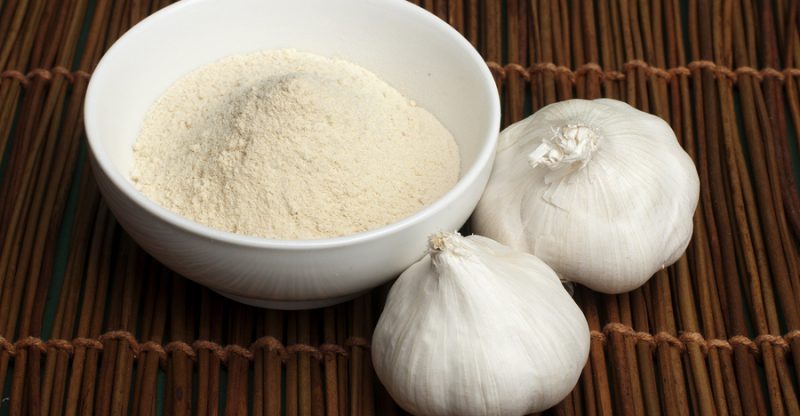You might want to think twice before buying garlic powder again
Food fraud. A term all of us are going to have to get used to. One of the world’s best experts on food fraud is cautioning us on garlic powder that may be contaminated with inferior ingredients. Professor Christopher Elliot second’s that. Mr. Elliot is the director of the Institute for Global Food Security at the Queen’s University Belfast in Northern Island. According to him, two things do not make sense—it doesn’t tally. The sales of garlic globally is on the same level as last year’s even though the weather in China—which was cold at a point in time—devastated the garlic chop. Just in case you didn’t know, China is the world’s largest producer of the spice.
So if this is the case, where exactly is the rest of the garlic coming from? This is the question that Prof. Elliot poses to all of us. Some so-called producers of garlic are “cutting” it with talcum or even chalk! That is frightening to hear and disturbing.
There is a strong possibility that Mr. Elliot intuition is spot-on as it has been in the past.
In 2016, Prof. Elliot published a study that showed about a quarter of oregano sold in the United Kingdom and in Ireland had other products such as olive and myrtle leaves!
“It didn’t matter the price of the oregano — the very expensive oregano or the very cheap — the adulteration happened across the full spectrum”.
He cited the recent Brazil meat scandal as one example of food fraud going on. A lot of the countries had to stop importing beef form the South American country as investigations continue to be carried out. Putting the fact that customers are being cheated out of getting what they are paying for, they could also be harming themselves, unbeknowingst to them!
These toxins will have a long-term effect on our health. If anyone will a nut allergy comes into contact with “garlic powder” that contains any nut particles, he/she could go into anaphalactic shock and die!
Another toxin that could be present in the spice is pesticides which have now been banned in some countries.
Canada has a well-rounded system to detect these pesticides and other chemicals in order to protect the consumers. This is according to Aline Dimitri who is the deputy chief food safety officer for the Canadian Food Inspection Agency.
“We haven’t really seen any major deviations in the system that would make us worry.”
Even though the monitoring system tests different foods, it is unable to catch all the tainted ones.
“This is our first line of defence to see if overall the food system is within the tolerance levels that are set for health and safety purposes.”





